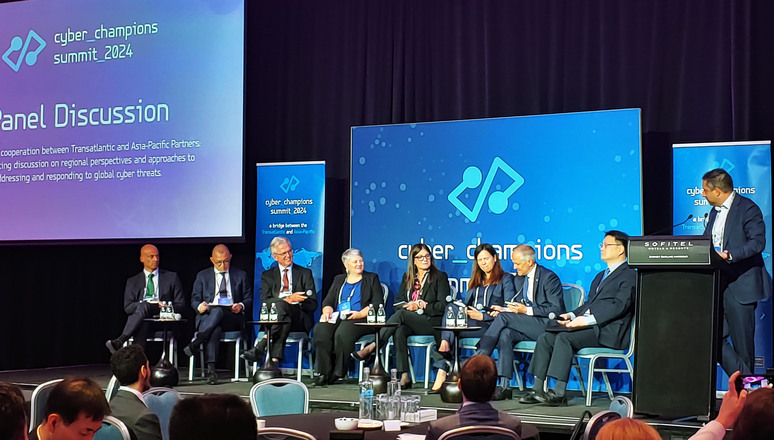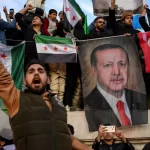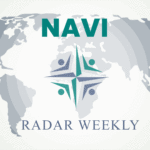Subscribe to NAVI Radar Weekly here
Focus Point: Regional Security- European Security
First NATO Ally Seeks to Join Putin-Xi’s BRICS Union | Newsweek
Brendan Cole | 02.08.2024| Subscription needed

Turkey will be the first NATO member to request membership of the BRICS economic bloc spearheaded by the leaders of Russia and China, Vladimir Putin and Xi Jinping, it has been reported.
One former Turkish diplomat has told Newsweek that the move has been driven by “accumulated frustrations” in Ankara with the West and the European Union. “This is not the strategy, by Ankara, to replace the West, but it’s a strategy to strengthen relations with non-Western powers at a time when the U.S. hegemony is waning,” said Sinan Ülgen, head of the Istanbul-based think tank EDAM.
Read more…
Focus Point: Security and Defense Policy- Russia-Ukraine War
Are Ukraine’s F-16s another case of too little, too late?| Chatham House
Keir Giles|03.09.2024
Like other high-profile weapons systems, the impact of F-16s may be curbed by limited numbers and US restrictions on their use.
Western-supplied F-16 combat aircraft have now been in Ukrainian service for several weeks. In 2022 and 2023, some had high hopes that provision of F-16s would be a game changer for Ukrainian warfighting capabilities.
Yet their final introduction has been something of a ‘soft launch’, without the expectations of a sudden and dramatic impact that accompanied other high-profile new weapons deliveries to Ukraine. Read more…
Focus Point: Security and Defense Policy- Great Power Competition
China claims breakthrough in autonomous vehicles | Defense One
Thomas Corbett and Peter W. Singer | 03.09.2024

Autonomous vehicles represent an estimated $2 trillion global market, and are expected to triple in value over the next decade. They are not just the future of transportation, but also have massive applications for the intelligent systems at the center of both U.S. and Chinese military plans.
Indeed, any progress towards autonomous capabilities inherently has military applications.
These reported breakthroughs come amid intense competition in the fields of autonomous vehicles, advanced driver-assistance systems, and unmanned aerial vehicles. Indeed, any progress towards autonomous capabilities inherently has military applications. For example, commercial drones have been used for reconnaissance and as munitions on Ukrainian battlefields, while the People’s Liberation Army, the Pentagon, and many other militaries around the world are developing autonomous vehicles. Under China’s policy of Military-Civil Fusion, SIMIT’s improved ability to map and track targets thus has value to not just associated car manufacturers, but also the PLA. Read more…
Focus Point: Security and Defense Policy- Russia-Ukraine War
Sorry not sorry, says Mongolia after failure to arrest Putin | Politico
Ketrin Jochecova | 03.09.2024

Energy dependence puts Mongolia — sandwiched between Russia and China — in a tough spot.
Apologies everyone, our hands are kinda tied.
That’s the message from Mongolia’s government after it failed on Monday to execute an international arrest warrant against Russian President Vladimir Putin as he landed in the country for an official visit.
In a statement to POLITICO on Tuesday, a Mongolian government spokesperson said that the country finds itself in a position of energy dependence, rendering it difficult to handcuff Putin on the International Criminal Court (ICC) warrant over war crimes in Ukraine.
“Mongolia imports 95% of its petroleum products and over 20% of electricity from our immediate neighborhood, which have previously suffered interruption for technical reasons. This supply is critical to ensure our existence and that of our people,” the spokesperson said. Read more…
Focus Point: Regional Security- Transatlantic Security-NATO
Turkey’s Role in NATO Comes Under Scrutiny | Newsweek
Brendan Cole| 05.09.2024 | Subscription needed
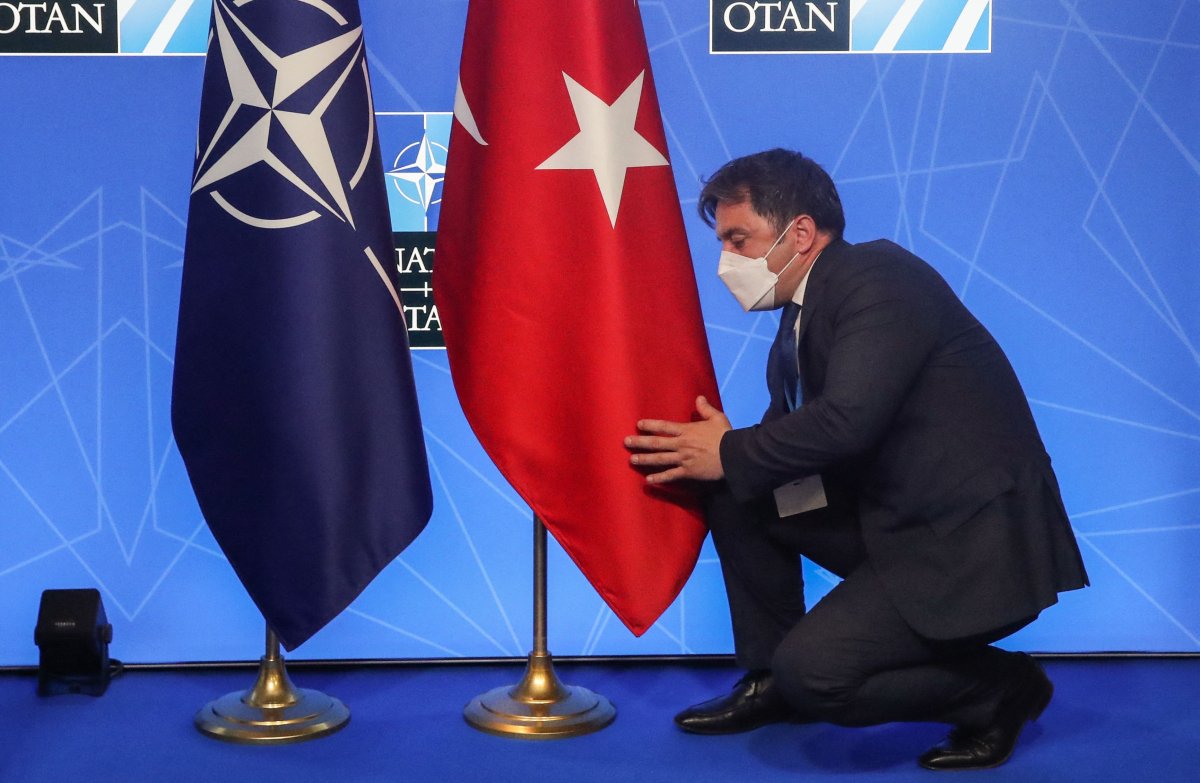
Turkey’s request to join two international organizations (BRICS and SCO) headed by Russia and China has added to questions about its role in NATO with which it has clashed in recent years.
Ankara asked this week to join the BRICS economic bloc named after Brazil, Russia, India and China and South Africa. It is seen as a rival to the G7 of the world’s most developed economies and aspirations to join it form the latest pivot by Turkish President Recep Tayyip Erdoğan away from the West.
Turkey’s request to join two international organizations (BRICS and SCO) headed by Russia and China has added to questions about its role in NATO with which it has clashed in recent years.
Erdoğan has said he also wants Ankara to join the Shanghai Cooperation Organization (SCO). It has raised concerns over the compatibility of Turkey’s membership of NATO, whose security focus is the invasion of Ukraine, with being in blocs spearheaded by Moscow carrying out the aggression.
Sinan Ciddi, non-resident senior fellow on Turkey at the Foundation for Defense of Democracies (FDD), a Washington, D.C. think tank said: “I don’t know how a leader could be more sort of instructive in their intent in saying where they’re moving towards and how they’re positioning their country.” Read more…
Focus Point: Emerging Technologies & Data / Cybersecurity
NATO Allies and Indo-Pacific Partners discuss cybersecurity cooperation | NATO
NATO| 05.09.2024
Cyber is an integral part of modern warfare and cyber-attacks on critical infrastructure, government institutions, international organisations and electoral processes are becoming more frequent and sophisticated. On Wednesday (4 September), senior cyber policy experts from NATO Allies and Asia-Pacific partners gathered at the Cyber Champions Summit in Sydney, Australia, to discuss current cybersecurity challenges and explore new avenues for cooperation. Read more…
Focus Point: Regional Security- Middle East
Turkey’s Erdogan calls for Islamic alliance against Israel | Reuters
Reuters | 07.09.2024
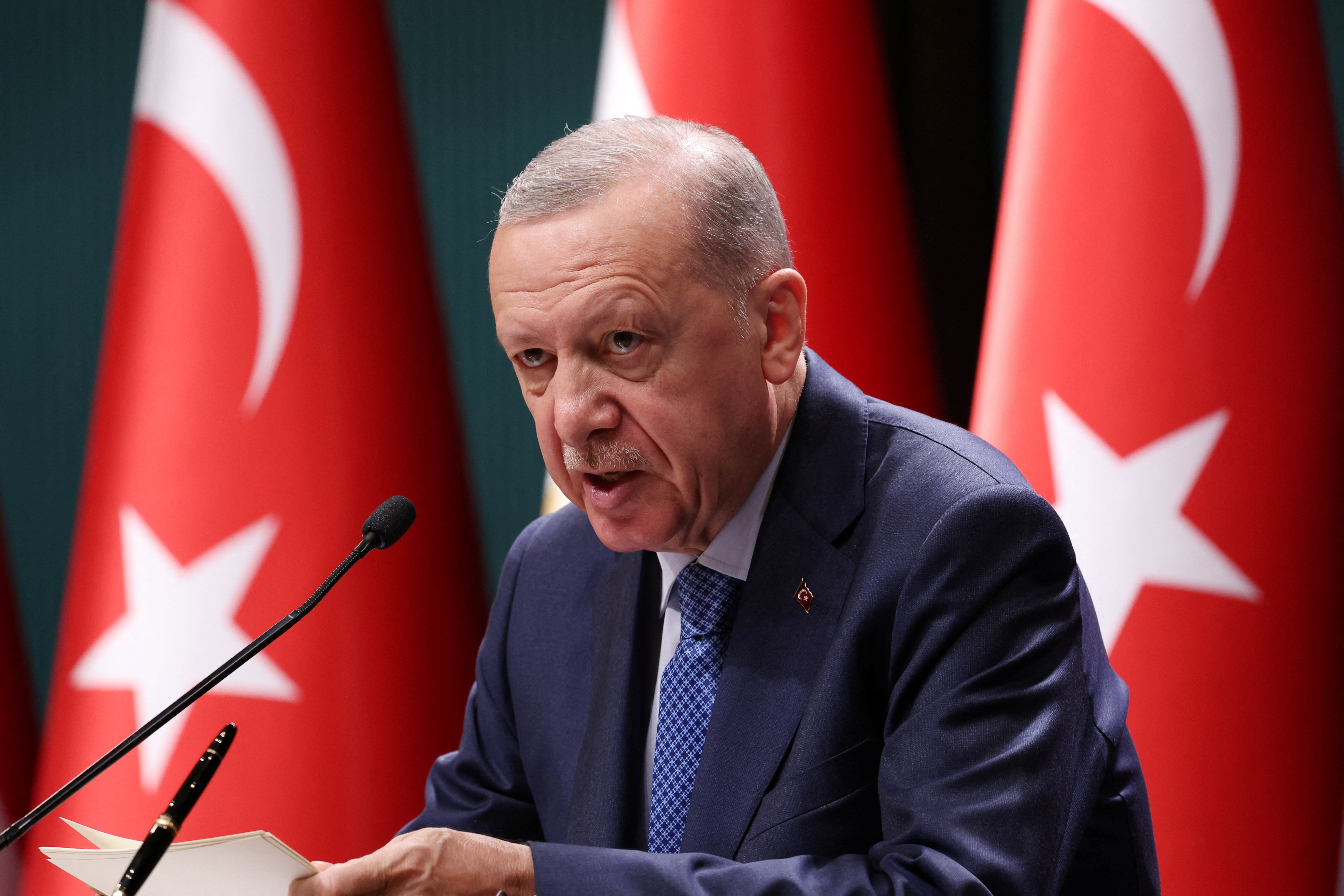
Turkish President Tayyip Erdogan said on Saturday Islamic countries should form an alliance against what he called “the growing threat of expansionism” from Israel, drawing a rebuke from the Israeli foreign minister.
“The only step that will stop Israeli arrogance, Israeli banditry, and Israeli state terrorism is the alliance of Islamic countries,” Erdogan said at an Islamic schools’ association event near Istanbul.
He said recent steps that Turkey has taken to improve ties with Egypt and Syria are aimed at “forming a line of solidarity against the growing threat of expansionism,” which he said also threatened Lebanon and Syria. Read more…
Focus Point: Security and Defense Policy- Russia-Ukraine War
Ukraine’s Kursk offensive has triggered doubts among Russian elite, spy chiefs say | FT
John Paul Rathbone |07.09.2024 | Subscription needed

CIA director Bill Burns and MI6 chief Richard Moore made first joint public appearance onstage at the FTWeekend festival in London.
“The international world order . . . is under threat in a way we haven’t seen since the cold war,”
Burns and Moore said one aim of their joint appearance was to underscore the strength of the UK-US relationship at a time of unprecedented global risks.
“The international world order . . . is under threat in a way we haven’t seen since the cold war,” both spy chiefs wrote in an article published on Saturday in the FT. Combating that risk “is at the very foundation of our special relationship . . . [which] can be relied upon into the next century,” they said. Read more…
Focus Point: Emerging Technologies & Data
China says “dissatisfied” with new Dutch export controls on ASML chipmaking tools | Reuters
Reuters | 08.09.2024
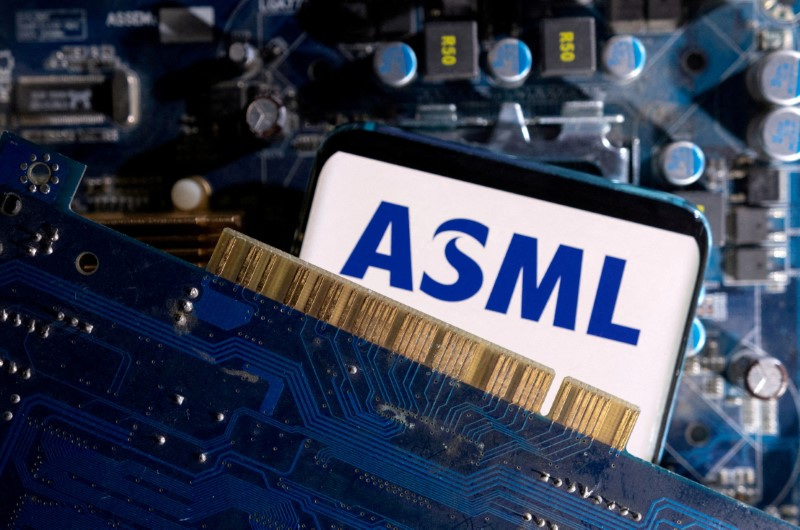
The Dutch government on Friday said it would expand export licensing requirements for ASML’s 1970i and 1980i DUV (Deep Ultraviolet) immersion lithography tools, aligning its rules with export restrictions on these machines unilaterally imposed by the United States last year.
Beijing has repeatedly criticised Washington’s strategy of pressuring allies like the Netherlands and Japan to join export controls targeting Chinese access to cutting-edge chips and chipmaking equipment.
“In recent years, in order to maintain its global hegemony, the United States has continued to … coerce certain countries to tighten export control measures for semiconductors and (related) equipment … China is resolutely opposed to this,” China’s commerce ministry said in response to the Dutch government’s announcement on Friday.
U.S. lobbying has effectively stopped ASML, the world’s biggest vendor of chipmaking equipment, from exporting its most advanced lithography systems to China.
Dutch Trade Minister Reinette Klever said on Friday the decision was made “for our safety”. Read more…
Thank you very much for reading.
The NAVI Research Institute is the research division of NATO Veterans Initiative - NAVI that provides a unique perspective to transatlantic leaders and societies on peace and security through the lens of NATO's founding principles of rule of law, democracy, human rights, and individual liberties. The NAVI Research Institute was officially established by the NAVI Board on July 16th, 2023.
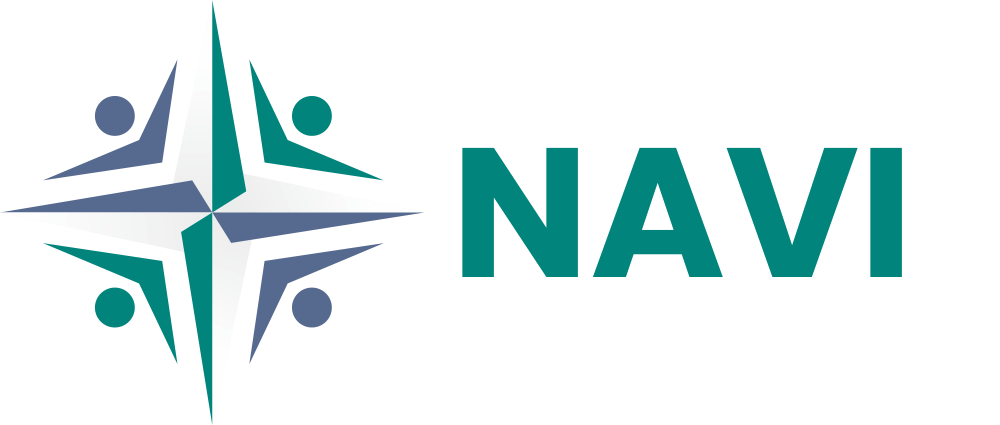
![NAVI-PROJE-[Recovered] Radar Weekly](https://nato-veterans.org/wp-content/uploads/2024/05/NAVI-PROJE-Recovered-696x392.gif)
